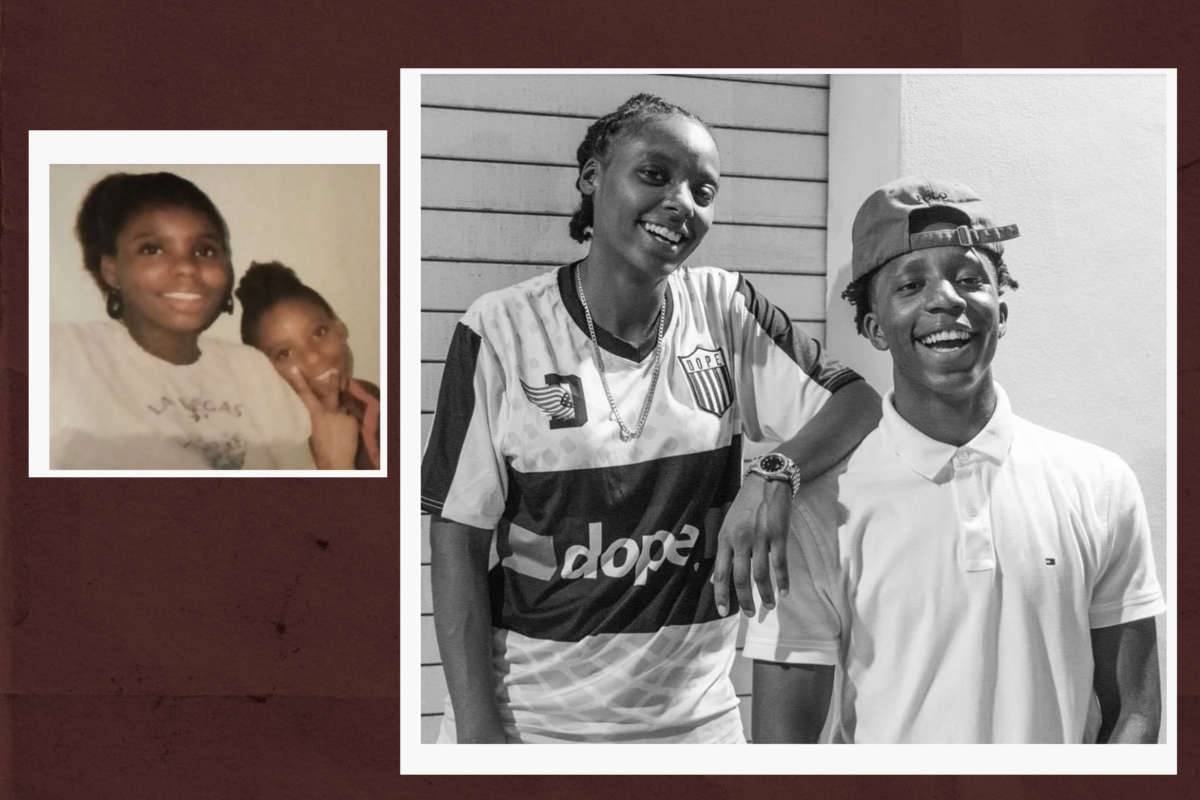Did you know that Truthout is a nonprofit and independently funded by readers like you? If you value what we do, please support our work with a donation.
Madison, Wisconsin, was recently ranked in one online list as “the best place to live in America.” This kind of accolade begs the question: How are such rankings decided? Who is it the best place for? Everyone? Or just some?
To those of us who look at metrics like diversity, safety and justice, this is a confounding ranking given the rise in violence against Black people in the city, and the fact that in 2020, the state of Wisconsin was rated last in the country for racial equality. Of course, many factors go into studies like these, and such rankings can be easily disputed, but one thing has become clear: Our city and state are not a place where Black people feel safe.
In our city, a queer Black woman survivor is currently being criminalized for an act of self-defense after a group of men stalked and attacked her. Is this “the best place to live in America”?
For years, 24-year-old Kenyairra Gadson suffered abuse, harassment and intimidation from a man in her community. Her gender and sexual orientation made her a vulnerable target, and her abuser often taunted her with homophobic slurs. The abuse even included an incident in which he shot at her.
On Halloween of 2018, the man along with a group of friends followed her as she attempted to get away from them. Once she made it to her friend’s car, they began their attack. Gadson shot one of the men in an attempt to protect herself, and was ultimately imprisoned for two years for first-degree reckless homicide.
The United States is in the midst of a national conversation about crime and safety. This conversation often focuses on the role of police and the criminal legal system. But who do these institutions really serve?
In 2015, 19-year-old Tony Robinson was murdered by police officer Matthew Kenny in Madison. Robinson’s grandmother fought hard to compel the city to take action, and petitioned the court seeking justice for her beloved grandson. But to this day, the officer that killed Robinson was never charged. The government’s treatment of a police officer who killed an innocent young man compared to its treatment of a survivor of violence, who was criminalized for defending herself, is a revealing contradiction. This helps us understand who the criminal legal system serves, and who it abandons.
In September of last year, 59-year-old Doyle Jay Reifert killed his roommate, Brian Swan. District Attorney Ismael Ozanne, who sought 50 years imprisonment for Kenyairra Gadson, released Reifert without any charges, asserting that Wisconsin’s self-defense statute — which is similar to “stand your ground” laws and commonly known as the “castle doctrine” — could apply to the case. No judge. No jury.
The criminal legal system in Madison has declared a woman who was clearly acting in self-defense to be a murderer, while letting men like Kenny and Reifert walk free.
In Madison, who is allowed to be a victim and who is always seen as a perpetrator? Despite courts saying that they aim to protect survivors, their actions have made one thing very clear: Their definition of a victim or survivor doesn’t include Black women.
Gadson’s story is tragic, but not unique. Many survivors of violence face double persecution: first at the hands of their abuser, and then at the hands of the legal system which criminalizes them instead of protecting them from harm. The fact that Gadson faces incarceration should tell us everything we need to know about our system and who it is designed to protect.
First, it shows us that a system that would imprison Black women for defending themselves was never built to protect them, and that it is not up to that task. It also tells us that instead of locking survivors away, we need to be talking about how we can prevent them from experiencing this kind of violence in the first place. We know that we will only be safe when we create the conditions for our safety. We need people in office, and on our courts, who understand how this system works, who it works for and who it systematically excludes. We need our community to understand these issues, and to organize, speak out and hold our elected officials accountable for their role in abandoning Black survivors of violence, like they have abandoned Kenyairra Gadson.
After eight years of a powerful citywide call for justice, it’s time for Madison’s courts to finally be accountable to the social movement led by Black communities.
Black queer women deserve to live free from violence, and we have the right to defend ourselves from harm.
We have the right to exist, and to be safe walking down the street with our friends after a night out.
We have the right to exist in our homes, in the streets, and anywhere and everywhere we go.
We will not rest till we make it so.
If you are interested in supporting Kenyairra Gadson, find out how to take action here.
Press freedom is under attack
As Trump cracks down on political speech, independent media is increasingly necessary.
Truthout produces reporting you won’t see in the mainstream: journalism from the frontlines of global conflict, interviews with grassroots movement leaders, high-quality legal analysis and more.
Our work is possible thanks to reader support. Help Truthout catalyze change and social justice — make a tax-deductible monthly or one-time donation today.
